Uncategorized
-
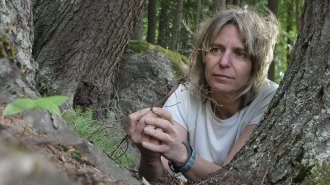 Science & Society
Science & SocietyAn ecologist’s new book gets at the root of trees’ social lives
In ‘Finding the Mother Tree,’ Suzanne Simard recounts how she discovered hidden networks in forests.
-
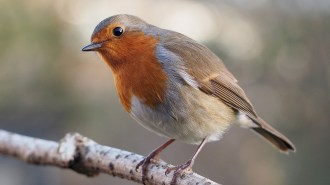 Animals
AnimalsA proposed ‘quantum compass’ for songbirds just got more plausible
Quantum physics could be behind birds’ magnetic sense of direction, new measurements indicate.
-
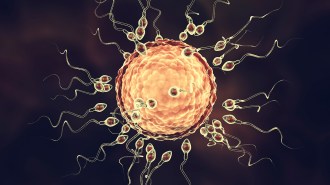 Genetics
GeneticsEmbryos appear to reverse their biological clock early in development
A new study suggests that the biological age of both mouse and human embryos resets during development.
-
 Anthropology
Anthropology‘Dragon Man’ skull may help oust Neandertals as our closest ancient relative
A Chinese fossil has been classified as a new Homo species that lived more than 146,000 years ago, but not all scientists are convinced.
By Bruce Bower -
 Physics
PhysicsDark matter may slow the rotation of the Milky Way’s central bar of stars
A method akin to studying a tree’s rings revealed the history of a slowdown of the rotating bar of stars at the heart of the Milky Way galaxy.
-
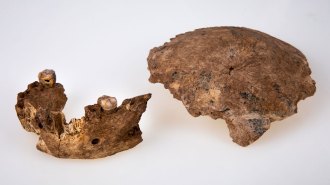 Anthropology
AnthropologyIsraeli fossil finds reveal a new hominid group, Nesher Ramla Homo
Discoveries reveal a new Stone Age population that had close ties to Homo sapiens at least 120,000 years ago, complicating the human family tree.
By Bruce Bower -
 Animals
AnimalsHow a gecko named Mr. Frosty could help shed new light on skin cancer
The distinctive coloring and skin tumors of a type of gecko called Lemon Frost have been pegged to a gene implicated in human skin cancer.
-
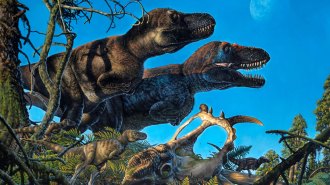 Paleontology
PaleontologyFor some dinosaurs, the Arctic may have been a great place to raise a family
Fossils of baby dinosaur remains found in northern Alaska challenge the idea that some dinosaurs spent only summers in the Arctic.
By Nikk Ogasa -
 Health & Medicine
Health & MedicineThe benefits of COVID-19 mRNA vaccines outweigh the risk of rare heart inflammation
A CDC group says the benefits of the Pfizer and Moderna shots outweigh the risk of myocarditis and pericarditis in adolescents and young adults.
-
 Health & Medicine
Health & MedicineHow relocating musicians can reduce COVID-19 risk at concerts
Based on simulations of how air flows across a stage, the Utah Symphony rearranged where its musicians sit and boosted ventilation.
-
 Animals
AnimalsChinese mountain cats swap DNA with domestic cats, but aren’t their ancestors
DNA suggests little-studied Chinese mountain cats have been rendezvousing with pet cats on the Qinghai-Tibetan Plateau since the 1950s.
-
 Astronomy
AstronomyAny aliens orbiting these 2,000 stars could spot Earth crossing the sun
Alien astronomers in those star systems could discover Earth the way we find exoplanets: by watching for a dip in starlight.